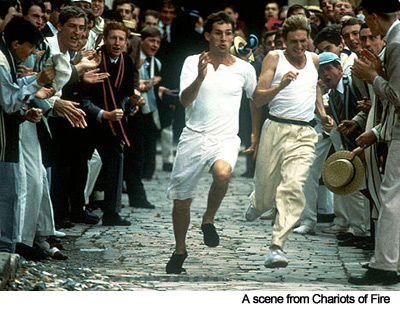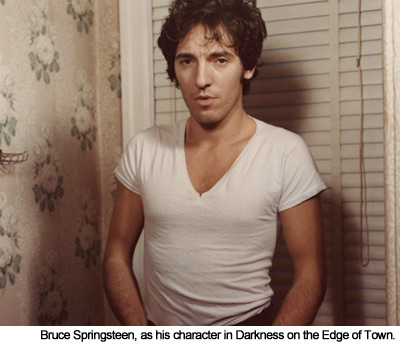When do you hire a professional to help you move your career forward? Sometimes this might be paying for a specific thing (such as a website); othertimes, it may be hiring expert advisors to help you move past a barrier and develop a strategy via training or consulting.
I have recently been addressing this topic for myself, as I have been outlining in the previous two blog posts of this series:
Today, I want to discuss the decision-making that goes into when and how to go about hiring a professional to assist you.
Deciding You Need Help
The hardest part of achieving a goal is starting. The second hardest part is to not stop, to keep going. Deciding that you need assistance is not a sign of weakness, it is often admission of reality: that you can’t do it all. Sure, you can get by all by yourself, a jack of all trades; but sometimes having is help the difference between success and continuing to run on that hamster wheel.
Hiring someone can provide expertise that you simply don’t have. Yes, you could read a book. But that is not the same as years of real-world experience, truly executing, not just learning theory.
Hiring someone can also save you time. Likely, you are juggling many things with few resources. Putting someone on your team to tackle a specific task means it frees you up to do other things, and pushes you forward more quickly.
For me, I built We Grow Media for nearly two years before I made many investments in hiring others. I wanted to make sure it was stable in terms of cash flow, but I also wanted to really learn more about who I served and how I served them. In the beginning, you make assumptions. I wanted to be SURE that whatever I invested in was exactly the right thing to encourage further growth.
Who To Hire
There are so many people out there who offer professional services. You need to find someone you trust and who will get the job done. I tend to break this out into two parts:
- Ensuring it’s someone I connect with. So I get a recommendation from a friend, or have a phone chat with someone I am considering hiring first. Or maybe I follow them on social media to get a sense of their work style and personality.
- Don’t just assume someone can deliver the goods – where possible look for real proof that they can execute on what they promise. Maybe this is experiencing the results of their work or it could be social proof – talking to their past customers.
Personally, I like hiring those who are building a small business, people who I can partner with and help them move towards their goals just by doing business with them.
Do your research on their background. Reach out to others who have worked with them. Look for a long track record. Go with your gut too – those who feel right.
Scary Legal Agreements
When possible, get an agreement that clearly states parameters, timeframes, process, deliverables, fees, etc. I used to be scared of this stuff – there is something about signing your name to a contract that can make people uncomfortable. But I have found that it sets proper expectations and protects people on both sides. Making too many assumptions will lead to serious problems down the road. You don’t want two people’s memories differing about what was agreed upon. Put it in writing – that way you have a paper trail and proper expectations.
Did I hire a lawyer for most of this stuff? Nope! There are loads of free guidelines and agreements online. Use those as a starting point – but keep it simple. I don’t like agreements that are more than a single page. I have also spoken to friends who have done this stuff before, which gave me lots of wisdom from those I trust.
Don’t be afraid to negotiate agreements. READ THEM! Fred Wilson, a very successful venture capitalist, has written in the past that no clause is “standard” in a legal agreement. (I can’t find the link to his great story on this, sorry!) If something doesn’t feel right, address it. Don’t be afraid to have a clause removed or modified. It’s better to address issues up front to move past them, than to let the fear linger in the back of your mind, and threaten to affect the relationship down the road.
I look for long-term partnerships, even if an agreement only addresses the short term. The idea is to build a relationship and resources that grow over time.
Focus on Communication & Relationships, Not Just Stuff
A big focus for me is working with those who work WITH me, not just do something FOR me. There is a value in the working relationship, in having conversations, not just sending email.
Some people put barriers to connecting – to me this is a warning sign. Examples: there is a form you need to fill out before you chat; you can’t find an email address; they try to keep things ONLY on email, never on the phone. I don’t mean these are “red flags” in terms of them not doing great work, I mean in terms of whether they align to the method in which I like to work. You have to consider how you work best with others, and keep that primary in your mind as you consider who to hire on a professional basis. Communication is critical – if those channels aren’t open, you will receive less value regardless of the other person’s skillset.
Consider how you are building relationships for the long-term, how you can find new ways to work together, to provide resources, and to assist in other ways of helping each other succeed.
The people I have hired recently are those I would openly recommend to others. Not because I get some kind of affiliate commission (I don’t), but because I want their business to grow, and have others benefit from their expertise.
As I detailed in my website redesign process, I would gladly recommend Ben and KJ from Spruce Solutions if you need work done on your website. Likewise, if you live in the New Jersey area, and need a great photographer, consider reaching out to Meridith Bailin Hull. I really enjoyed working with her, and loved the photos she created.
What About the Money!?
If money weren’t an issue, of COURSE each of us would hire people all the time, and always only the BEST of the best. But money is an issue – we have limited resources to work with, and want to ensure that every dime that we spend somehow repays us down the road with a quarter.
Pay people to help achieve goals that truly move your career forward. Maybe it’s a “thing,” such as a website. But maybe it isn’t – maybe it’s a service or expertise that helps you develop a strategy or move past a barrier. If you walk away from the experience much closer to achieving your career goals, then it is likely money well spent. So: define your goals clearly before you consider what you are hiring people for.
Work in phases when you can. It’s tempting to say that you will hire an agency to build your career from the ground up. They make promises, and send you a huge bill for the service. But… why not step through the process in phases. One thing at a time – one investment of your resources at a time. You learn things in the middle of a process that you never could have imagined at the outset.
Don’t always think that the most expensive option is always the best. Sometimes the most expensive option is only that: the most expensive, not the most EFFECTIVE.
Likewise, don’t always think that the biggest player – the most prominent name in a field is the person you need to hire. Some big names leverage their skills and experience across so many different projects that you get a mere sliver of what they are capable of, especially at the price you can afford. Sometimes hiring an upstart provides 100% of their resources – they NEED for you to succeed in order to further their own career.
When You Can’t Afford Something: Negotiate
When needed: negotiate. I am always SHOCKED that people are too sheepish to do this. That someone will send them an estimate for a project of $5,000 and even though they could afford $3,500, they end up just saying: “No, sorry, I can’t afford $5,000,” and walk away. Work with people to come to a price that works for each of you.
Measure the investment against how much it would cost you to do it yourself. Could you do it yourself? If so, how much time and resources would it take? I could have redesigned my own website. BUT – it would not have turned out nearly as nice at what Ben and KJ provided me, and it would have eaten up TONS of my time – time better spent on other projects that deliver more long-term value to my business.
Don’t Disregard the Emotional Benefit of Working With an Expert
Most people don’t pursue their dream in life. They will tell you it is because of some barrier such as time or money. But often it is fear – it is lonely to take a risk to build something that no one else expected of you. It’s too easy to just do what you have always done.
Hiring a professional can be the key thing that pushes you forward to attacking and achieving your dreams and goals. It builds momentum. It means that there is someone in the world 100% focused on making this happen for you. Imagine that. It’s HUGE. Most of us spend our days surrounded by people trying to ensure things don’t change. That you remain as you are, in your station. But when you hire someone, they wake up in the morning focused on helping you achieve. Are you paying them? Sure – of course. It doesn’t come cheap. But then, if it’s the difference between you becoming what you want to be, and not, well, maybe it’s worth it.
Thanks!
-Dan








